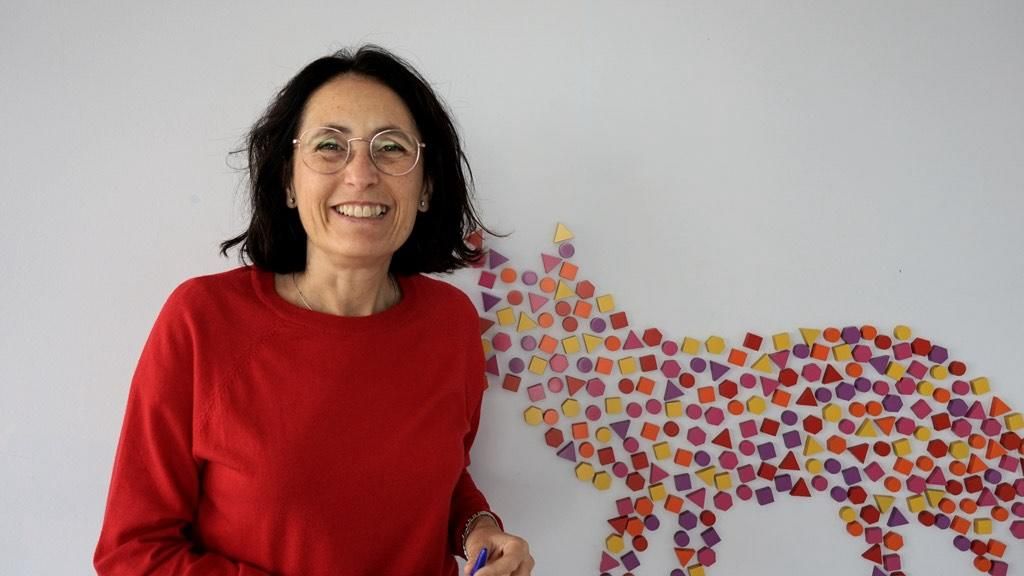‘We are like primary care physicians, except we handle patients with complex or advanced disease’

We interview the leading pediatrician at the intermediate healthcare facility led by SJD on the second anniversary of its opening.
Teresa Gili, the reference pediatrician at La Casa de Sofía, chats to us between meetings. She makes it clear from the get-go that her priority lies with her patients and their families, and she does not spend more time than necessary on these kinds of tasks: ‘If a patient needs me, I'll have to go’. She smiles calmly, and breaks down the situation for us: the last two years since the opening of La Casa de Sofía have been challenging. They are looking at how they can improve, but generally speaking, feedback from families has been positive.
How would you sum up where La Casa de Sofía stands, as of today?
I think that, being the first pediatric care facility of our kind in Catalonia and wider Spain, we have made a good start in establishing a social healthcare system for pediatric patients in the region. It is a huge challenge, as there is still work to be done in raising awareness of this type of care offering for pediatric patients, as the Catalan network is still very young. Many people know of an adult or older person who has been well cared for at a social healthcare facility, but this is not as often the case for children and teenagers.
What are the differences between this facility and an intermediate care facility for adults?
The type of patient we treat is completely different. These are children and teenagers with complex chronic diseases, advanced diseases or who are at the end of life. When an adult arrives at a healthcare facility, there are only one or two questions to be answered. When a child arrives here, however, they often have a very complex clinical background and support devices (be that respiratory support, feeding, etc.). This merits specialised care and a implies a totally different workload than that of caring for adult patients.
Infant children with a complex chronic disease often need respiratory support, and despite their young age, they have usually had various treatments and suffered a variety of associated complications. This means that families need to be educated when they are here so that, when they return home, they are better prepared and the patient has a better quality of life.
‘They should not be afraid to be admitted here. Here, time is on our side: time to be with the patient, time for them to recover, time to educate.’
How do families fare with admission to the facility?
In some cases there is a little pushback, as they think there are more resources in an acute care centre. They are also quite apprehensive about spending time at a facility that, oftentimes, is thought of as being for long-term admissions or for the end of life stages. That could not be further from reality. The majority of families are discharged with their children, who then go on to live their adult lives despite their chronic disease. Patients at the end of life make up only 6% of all of our patients here.
That is why, as parents get to know us, they understand that they are not just here to be with their child during their admission, but they are also getting support in other areas that are affected by the child’s condition, often a rare disease. This complexity we mentioned before also means that families need to be educated on how to use different devices: many already know how to use them, but they feel unsure, or they could improve.
What do they view positively about La Casa de Sofía once they are discharged?
The support they themselves receive, apart from that which we offer their children. Families often need to be heard: they go through long, arduous processes and they have a lot to say. That is why the team at La Casa de Sofía actively listens, trying to adapt how they teach families to their daily lives and support them in ways that go beyond the purely medical. That means providing psychological or spiritual support, adapting care provision to at-home methods, allowing them to go out with their children, deal with paperwork, errands, etc.
In a general hospital, it is more difficult to see the family as comprehensively as we do here. I like to say that we are like primary care physicians, except we handle patients with complex or advanced disease.
Do you have anything you would like to say to the families who do not know who you are yet?
They should not be afraid of admission here. Here, time is on our side: time to be with the patient, time for them to recover, time to educate. Time to learn and even time to go back home for a while if need be. For example, we have found that allowing patients who have been here the longest a temporary discharge is something that really benefits families. It makes them feel like they are normal again: they go back home for a day or two at the weekend and, on Monday, when they return, they tell us how it went. This lets them see if they are ready to go back home, whether it is something that should be done gradually or whether they feel confident that they can get back to their normal life already. Families are ensured that they can turn to us for help whenever they have any problems.




